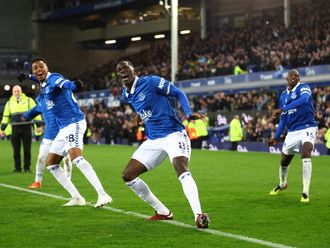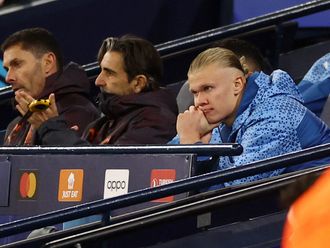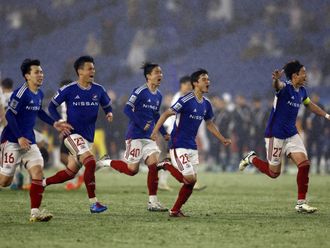Doha Qatar won't say whether it will sell alcohol at stadiums during the 2022 World Cup, although a top official said on Wednesday that the Gulf nation was discussing with Fifa where it would be sold in Doha during the tournament.
Hassan Al Thawadi, general-secretary of the Qatar 2022 Supreme Committee, said alcohol would be sold during the event and Qatar was "discussing with Fifa the extent of it and where".
He said the country was aiming to put on a World Cup where "everyone will be able to have a great time, have fun and be exposed to Qatari culture".
Qatar, a nation with conservative Muslim traditions and significant population of foreign workers, limits the sale of alcohol mostly to five-star hotels. It doesn't sell alcohol at football matches.
"Alcohol will be allowed in Qatar," Al Thawadi said, although he didn't "see the reason for it being in the stadium".
He noted that several nations don't sell it at matches. "I'm looking at it in terms of England and looking at in terms of everybody else. That is something we are discussing with Fifa... Let's discuss this with relevant stakeholders and come up with a plan that welcomes everyone."
Fan zones
The issue of alcohol dogged the Qatar bid before it beat the United States, Japan, South Korea and Australia in December 2010 for the right to host the tournament. Qatar said before winning the World Cup bid that it would create fan zones and promised to allow drinking in some of them.
The debate over alcohol sales at World Cups is not limited to Qatar. Russia, which is hosting the 2018 World Cup, prohibits alcohol at stadiums and nearby stores. President Vladimir Putin in January promised Fifa President Sepp Blatter that it would reconsider a ban on beer at stadiums during World Cup.
Brazil, which is hosting the 2014 World Cup, has also wrestled with the issue.
Existing Brazilian law forbids alcohol sales inside stadiums during football matches to cut down on fan violence, but a World Cup ban would upset some of Fifa's sponsors.
Fifa has said it will sharply defend the commercial rights of all its sponsors — among them brewer Anheuser-Busch InBev, the maker of Budweiser, which has extended its sponsorship of the World Cup through the 2018 event in Russia and 2022 in Qatar.










